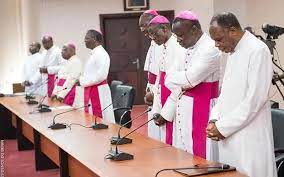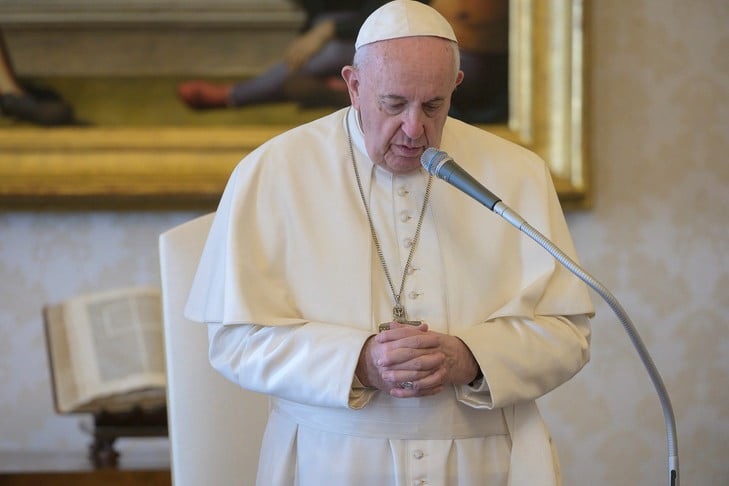Daniel Arap Moi, Kenyan head of state between August 1978 and December 2002, died on February 4. In addition to the many tributes addressed to him in Kenya, was that of the Catholic Church from which he was baptized.
“I urge all citizens to mourn the leader while respecting what he has done for the country. He has done a lot of good things for this country, ”responded Archbishop Joseph Mbatia, bishop of Nyahururu, in eastern Kenya, after the announcement, on February 4, of the death of Daniel Arap Moi, 95, who ruled Kenya for 24 years. According to the bishop, the former Kenyan head of state “never missed Sunday mass but never talked about church politics. What is in his eyes “a sign of respect”.
Daniel Arap Moi was baptized by Catholic missionaries in his youth.
He came to power after the death of Jomo Kenyatta, the first president of Kenya, of whom he was vice-president from 1967 until his death in 1978, and then his successor. The record of Arap Moi’s presidency from 1978 to 2002 has been dominated by arbitrary arrests, patronage and corruption. But it is credited with the relative socio-political stability of the country.
Relationship with the Catholic Church
Relations between the Church and the president were quite strained from the 1980s. In 1982, after a failed coup, the Arap Moi regime became autocratic, notably with the establishment of the single party. During this period, opponents, human rights activists and even religious were detained and tortured by the regime.
A high-risk presidential election in Kenya
Commenting on this drift of power from the former president, Archbishop Mbatia said: “When the Church raised the issues of social justice and life itself, it sometimes felt very bad. But I don’t think it meant he hated the Catholic Church. It stands on the side of the people ”.
In 2004, Arap Moi asked forgiveness from those he had wronged while he was president.
On February 4, it was the current President Uhuru Kenyatta who announced his death: “Our nation and our continent have been immensely blessed by the dedication and service of the late Mzee Moi, who spent most of his adult life serving Kenya and Africa. “
xxxxxxxxxxxxx
C’est un vieil adage anglais que l’honneur est toujours donné à qui l’honneur est dû. Cela peut avoir suggéré la raison pour laquelle l’Église au Kenya a continué à rendre un hommage spécial à leur héros tombé. RECOWACERAO NEWS profite de cette occasion pour faire appel à divers dirigeants africains pour emprunter une feuille à ce grand leader de notre temps. Notre NEWS CREW a appris que Daniel Arap Moi, chef de l’État kényan entre août 1978 et décembre 2002, est décédé le 4 février. Aux multiples hommages qui lui ont été adressés au Kenya, s’est joint celui de l’Église catholique dont il a reçu le baptême.
« J’exhorte tous les citoyens à pleurer le leader tout en respectant ce qu’il a fait pour le pays. Il a fait beaucoup de bonnes choses pour ce pays », a réagi Mgr Joseph Mbatia, évêque de Nyahururu, dans l’est du Kenya, après l’annonce, le 4 février, du décès de Daniel Arap Moi, 95 ans, qui a dirigé le Kenya pendant 24 ans. Selon cet évêque, l’ancien chef de l’État kényan « ne ratait pas la messe du dimanche mais ne parlait jamais de politique à l’église. » Ce qui est à ses yeux « un signe de respect ».
Daniel Arap Moi a été baptisé par les missionnaires catholiques dans sa jeunesse.
Il est arrivé au pouvoir après la mort de Jomo Kenyatta, premier président du Kenya dont il a été le vice-président de 1967 jusqu’à sa mort en 1978, puis le successeur. Le bilan de la présidence d’Arap Moi, de 1978 à 2002, est dominé par des arrestations arbitraires, le népotisme et la corruption. Mais on le crédite de la relative stabilité de sociopolitique du pays.
Relation avec l’Église catholique
Les relations entre l’Église et le président ont été assez tendues à partir des années 1980. En 1982, après un coup d’État manqué, le régime d’Arap Moi est devenu autocratique avec notamment l’instauration du parti unique. Pendant cette période, des opposants, militants des droits de l’homme et même des religieux ont été détenus et torturés par le régime.
Une présidentielle à haut risque au Kenya
Commentant cette dérive du pouvoir de l’ancien président, Mgr Mbatia déclare : « Lorsque l’Église a soulevé les questions de la justice sociale et de la vie elle-même, il s’est parfois senti très mal. Mais je ne pense pas que cela signifiait qu’il détestait l’Église catholique. Celle-ci se tient du côté du peuple ».
En 2004, Arap Moi a demandé pardon à ceux à qui il avait fait du tort pendant qu’il était président.
Le 4 février, c’est l’actuel président Uhuru Kenyatta qui a annoncé son décès : « Notre nation et notre continent ont été immensément bénis par le dévouement et le service du défunt Mzee Moi, qui a passé presque toute sa vie d’adulte au service du Kenya et de l’Afrique ».
- RECOWA-CERAO WELCOMES TWO NEW BISHOPS - July 26, 2024
- TODAY WE ARE TAKING UP THE THIRD SEGMENT IN OUR SERIES - July 26, 2024
- CHARACTERISTICS OF GREAT LEADERS SHARED BY A USA AUTHOR - July 25, 2024







